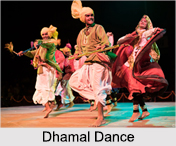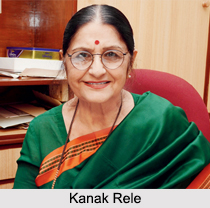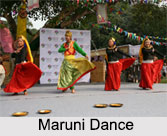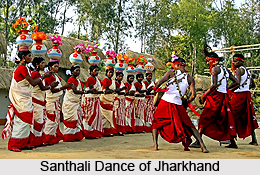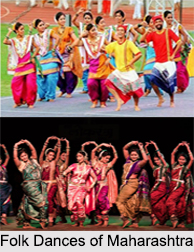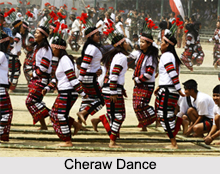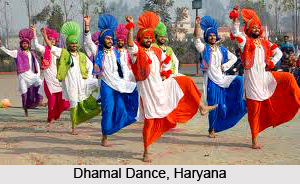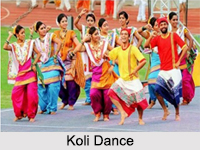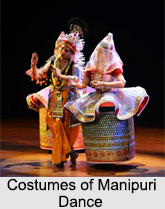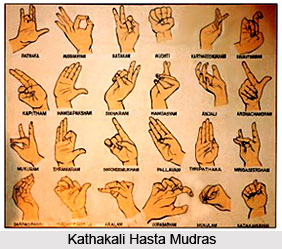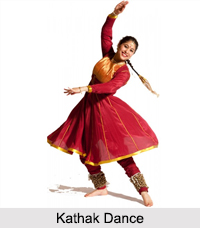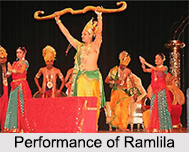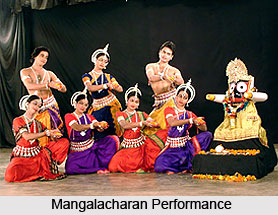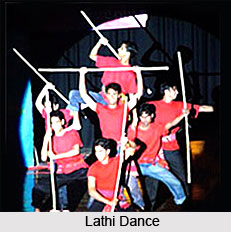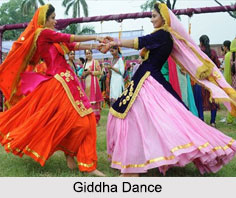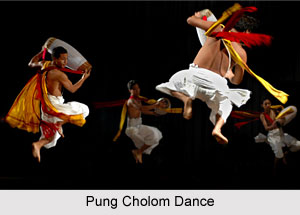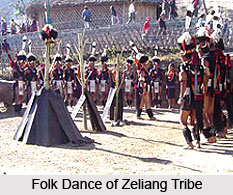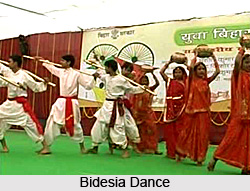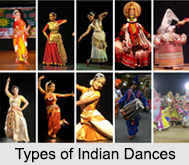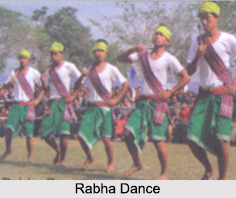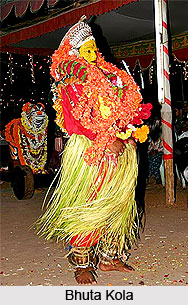 Bhuta Kola, an ancient ritual dance, is the worship of spirits, by the Tulu community of Tulu Nadu, which includes Kasaragod taluk in Kerala and Dakshina Kannada and Udupi districts in Karnataka. The ritual of Bhuta Kola is almost similar to that of Theyyam, which is a custom of worship, mostly practiced by the Malayali in North Malabar. Bhuta Kola, highly stylised ritual dance form of the possessed, is among the most popular art forms coastal Karnataka, which comprises of a mystical world of supernatural entities with the gears of make-up, costume, dialogue, dance and music. The music, dances, dialogues and trances replicates the socio-economic orders, artistic achievements, thought patterns and socio-cultural values preserved in the rural cultures of various regions.
Bhuta Kola, an ancient ritual dance, is the worship of spirits, by the Tulu community of Tulu Nadu, which includes Kasaragod taluk in Kerala and Dakshina Kannada and Udupi districts in Karnataka. The ritual of Bhuta Kola is almost similar to that of Theyyam, which is a custom of worship, mostly practiced by the Malayali in North Malabar. Bhuta Kola, highly stylised ritual dance form of the possessed, is among the most popular art forms coastal Karnataka, which comprises of a mystical world of supernatural entities with the gears of make-up, costume, dialogue, dance and music. The music, dances, dialogues and trances replicates the socio-economic orders, artistic achievements, thought patterns and socio-cultural values preserved in the rural cultures of various regions.
Origin of Bhuta Kola
The origin of Bhuta Kola is cloaked in uncertainty. The ritual is a multifaceted blend of beliefs, music and literature and dramatically enhanced. Spirit worship is amongst the most ancient religious beliefs of South India and can be traced back to the tribal period. The Bhutas or the supernatural spirits are considered as Ganas, the attendants of Lord Shiva, who are the sentinels of the villages, protecting and blessing the villagers and their cattle. The Tulu community has a tradition of twofold worship; the Puranic Gods are worshipped in temple by Brahmin priests and the local spirits and deities are venerated by the devotees and share an intimate relationship.
Rituals of Bhuta Kola
The custom of Bhuta Kola is carried on through out the night in a decorated Pandal that contains images of deities and other substances of reverence. The Pandal is properly adorned with different figures made out of areca flower, mango leaf and palm leaf. The musicians, along with drums and other instruments provide tunes of varying tempo at various phases of the processions. The spirit impersonator, who invokes the Bhuta, is prepared in colourful attires, along with bells, sword and other accessories. He then undergoes a ritual oil bath to purify his body and mind and prepare himself for self-hypnotism to impose the spirit upon him
Pastes of various colours, extracted from plants, are utilised for make-up as each colour symbolises different characteristic features of the spirit. The wife, sister or mother of the impersonator, sings the Paddanas, narrating the origin of the deity, its descent into the mortal land, courageous deeds, its journeys and sphere of influence. The spirit impersonator now assumes the function of the spirit and calls out the authorities by their ranks to inquire the purpose of his invocation. The devotees appease the spirit and plead for safety and protection, prosperity, adequate cultivation and riches for the community. The verdict of the impersonator is ultimate without stipulation for appeal. Among the gods that are revered, Annappa Panjurli, Pili Chamundi, Mula mysondaya, Arasu Kuriyadithai, Ullaalti, Varte, Lakkesiri, Maariamma, Virabhadra, Nenjacanya, Nenjacanya, Guliga, Jumadi Vaidyanatha, Chaundi, Jataadhari, Vishnumurti, Wayandu, Koraga-Taniya, Daiva Raja Koteda Babbu, Bobbarya, Siri, Koti and Chennayya, Abbage Darage, Jarandaya, Kodamandaya are the most notable.
The supernatural entities belong to various categories like Daiva, Bhuta, Cikku, Kule, Sirikulu, Preta etc. The spirits that are summoned usually include ghosts, spirits of animals and cultural heroes and anthropomorphic divinities of several types. Upadra or suffering caused by a spirit arises in cases of unnecessary possession, and signify the arrival of vicious diseases by spiritual attack on humans, crops and animals.
Recent trend in Bhuta Kola
Even in the modern society, Bhuta Kola is still an important part of the Tulu Nadu people. Although the new generation is skeptical of the influence of the supernatural entities and spirits, but they still accept and trust the ritual of Bhuta Kola.
